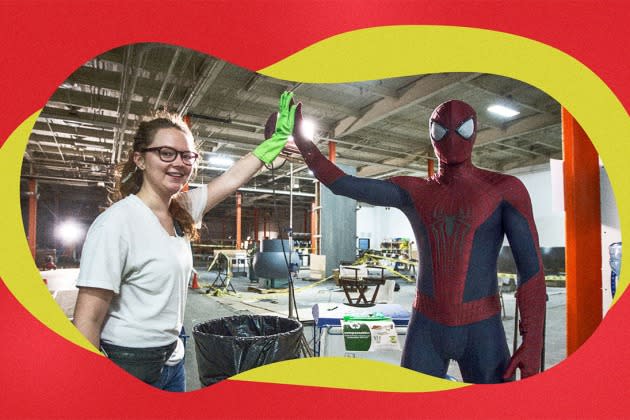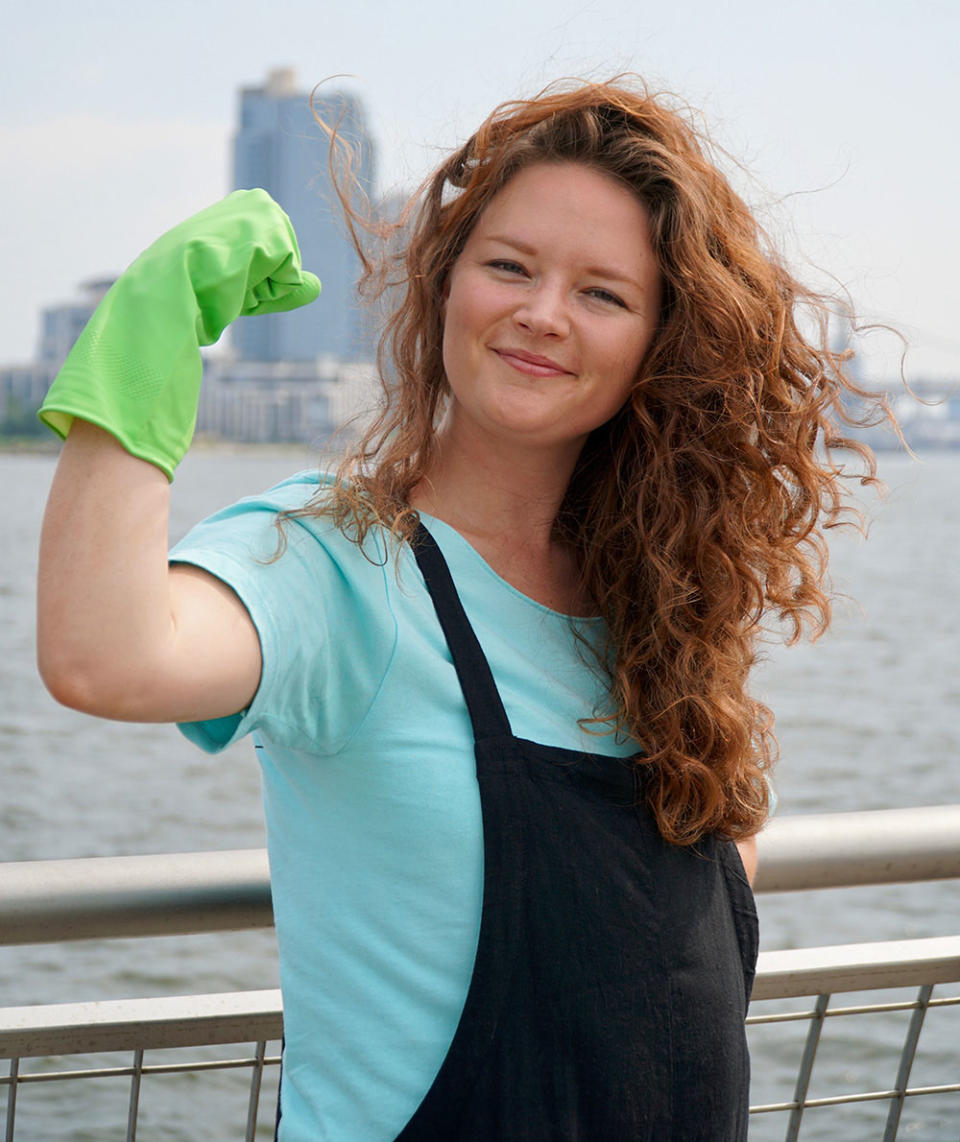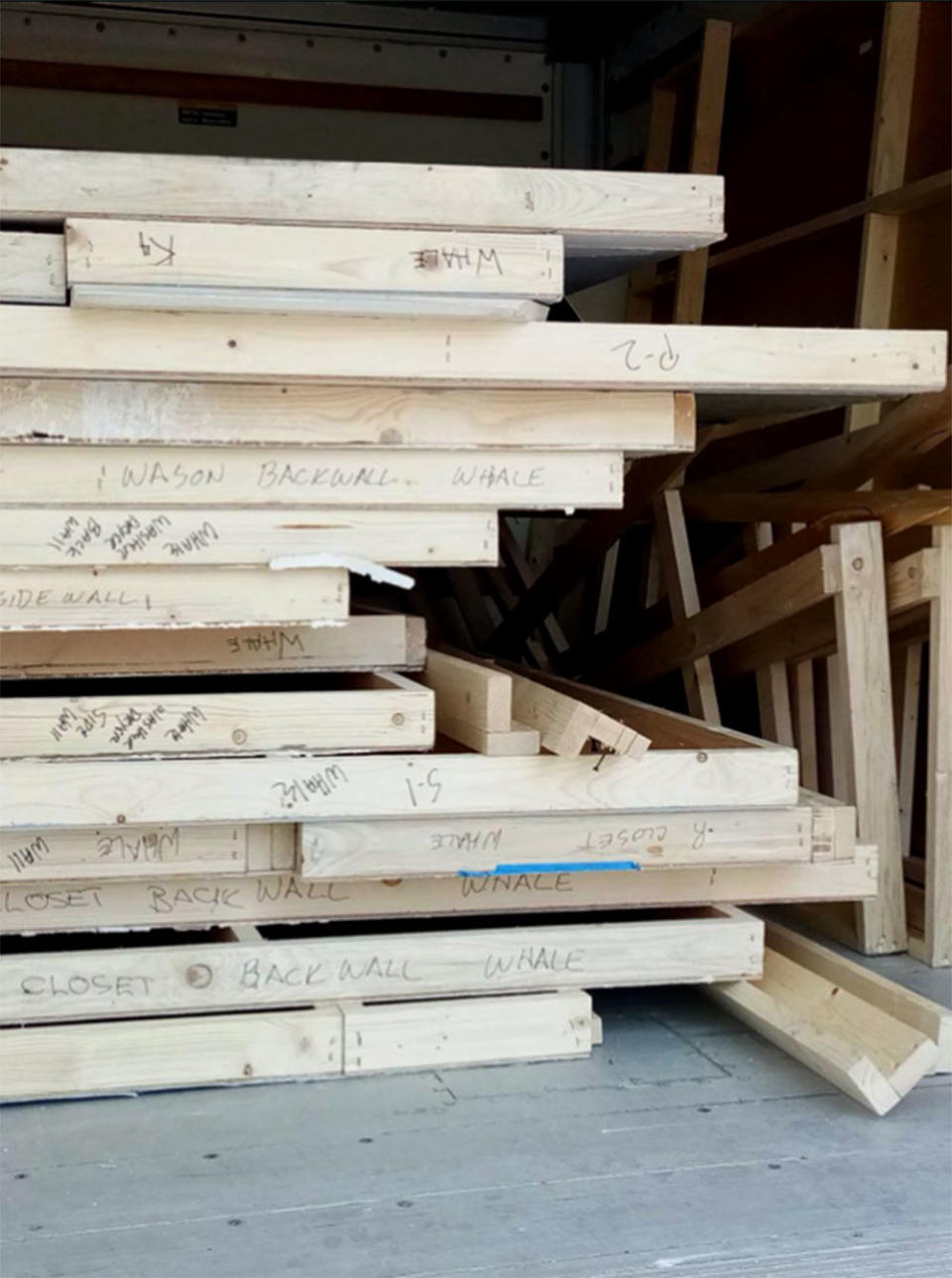For Earth Angel, Every Production Is a Chance to Help Save the Planet

This story is part of The Hollywood Reporter’s 2023 Sustainability Issue (click here to read more).
The big question — “How can Hollywood help fight climate change?” — gets answered on a daily basis by Earth Angel. The sustainability consulting agency is one of the busiest set-greening companies helping the entertainment industry do its part.
More from The Hollywood Reporter
Hollywood Courts Wall Street's ESG Investors Mainly With Film and TV Messages, Not Carbon Offsets
'A Matter of Degrees' Co-Host: Hollywood Needs More Climate Stories
“As storytellers we need to tell stories that inspire. And if we are going to do that, we better practice what we preach,” says Darren Aronofsky, who enlisted Earth Angel’s help on the set of his award-winning film, The Whale.
Founded by Emellie O’Brien in 2013, Earth Angel has spent a decade advising TV and film productions (as well as commercial and live productions) on how to reduce their carbon footprints.
“When productions sign Earth Angel on to a project, they’ll have up to seven specialists that will be working on the project throughout the process, including experts in analytics, material recovery, waste and energy strategy, education, industry relations, as well as a project supervisor and on-set eco-coordinator,” says O’Brien. “We’re a sustainability department. We are working every single day on-set along with our fellow departments.”

Among a wide array of greening tools, Earth Angel helps sets divert waste from landfills by recycling, composting, reducing/eliminating single-use plastics, and donating materials and food to local communities. Depending on how early Earth Angel gets involved, it also can advise on greener transportation methods, reducing paper use on set (with digital solutions such as script app Scriptation), and lower-emission power sources, such as battery- and hydrogen-powered generators.
“A more sustainable set is a cleaner set,” says O’Brien, who points out that fossil-fuel-powered generators are also a crew health and safety concern. “There are carcinogenic emissions coming out of those generators.” Pushing for a more sustainable production is “for the benefit of all of us.”
Earth Angel has also worked on the sets of projects including Avengers: Infinity War, Black Panther, Emancipation, Spirited, Billions, The Marvelous Mrs. Maisel, Orange Is the New Black, The Staircase and WeCrashed.
In 2022, Earth Angel, which currently has 21 employees, worked on four film and 19 TV projects and expanded its work overseas to Europe, South America and South Africa through strategic partnerships.
The organization is a merger of O’Brien’s passions — she spent her years at New York University “making student films and attending climate protests,” and interned at Focus Features, where she ended up working on the specialty film unit’s green initiatives. “Slowly, our producers were hiring individuals to green their sets,” says O’Brien. “I thought, How do I do this?”
She got a job as a set-greening PA on a Big Beach Films project in 2011. “I learned so much,” says O’Brien. “It opened up all of these possibilities of where the industry can go, working more efficiently and conscientiously.”
With sustainability work in production still rare, O’Brien became a line producer assistant for a while, before getting a call from Paramount to work on Aronofsky’s film Noah.
“Darren was a huge advocate and supporter,” says O’Brien, who fondly remembers finding inventive ways to help the Noah set weave sustainability into the film’s creative needs. “We had rain rigs on set every day. How do we come up with a solution for the water runoff, so we are not just wasting gallons and gallons of water?”
“I think we were one of the first films to have a department that dealt with sustainability,” says Aronofsky. “There were a lot of jokes about it from the crew, but ultimately I think the purity of the mission, the sincerity of it all, inspired a lot of folks.”
O’Brien says an important part of production sustainability work is to give back to the communities where they shoot.
Hurricane Sandy hit during Noah’s New York production, so they donated food to hurricane victims by the film’s crew opting out of breakfast one morning and redirecting their catering trucks to those in need. They were able to provide 300-400 hot meals, says O’Brien, “and it didn’t cost the production anything.”

After Noah, O’Brien also put on her green gloves for Sony’s The Amazing Spider-Man 2, where her team’s eco-friendly practices helped save the studio some $400,000.
O’Brien says this Spider-Man production also gave back to the New York community, deploying teams to one of the shoot locations to do restoration and tree planting in areas damaged by Hurricane Sandy. “It’s a critical aspect of our work to leave places better than we found them.”
Earth Angel was founded soon thereafter, and O’Brien recently worked again with Aronofsky on A24’s The Whale. “It was harder on this film,” the director says, “because of COVID restrictions. But we worked hard to be as constructive as possible. The film had a very small imprint because we were one room with five actors.”
According to Earth Angel’s final diversion report — an in-depth look at how a production fared in eco terms, which is shared with filmmakers after they wrap — The Whale was able to divert 5.4 tons of materials from landfills and recover an additional 2.1 tons of donations during its wrap, achieving an overall diversion rate of 82 percent. Among the materials donated were stage flats from the film’s set (gifted to a local performing arts academy), and more than 1,800 meals were gifted to food banks and community organizations.
While greening sets is becoming more common, at times it can still be an uphill battle to convince the bean counters that it’s a must. “One of the largest contentions to bringing us on a project is creating a new line item in the budget,” O’Brien says, though “more and more productions are seeing the value.” Earth Angel’s overall services average around $30,000-$40,000 per project, says O’Brien, but can vary based on the length and scope of each project. She adds that if productions were able to find funds to meet the COVID crisis, the climate crisis should be met with a similar urgency.
Production execs who have worked with Earth Angel note that part of the issue that’s working against greener sets is that there isn’t one vision for sustainability on a national scale in the U.S. Sets tend to be greener overseas because there’s much more existing infrastructure, as some countries are already ahead in terms of eco-mindedness.
But when creatives and crew make it a priority, things can change quickly. “There’s little pushback anymore, as long as filmmakers make room for it,” says Aronofsky. “I believe it’s important to make sacrifices to be green.”
Among the other North American companies working in the set-greening space are: Good Planet Innovation, Green Spark Group and EcoSet.

